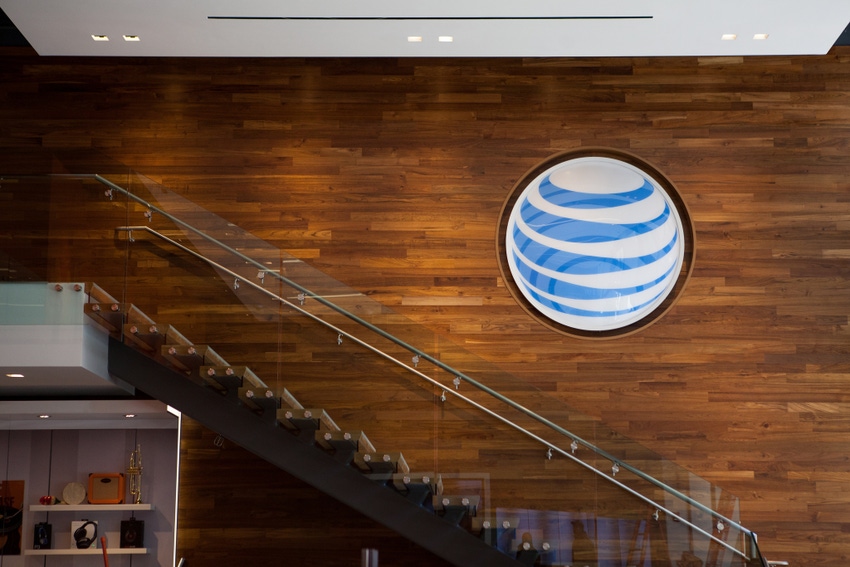AT&T reportedly considering TV U-turn
A report is suggesting AT&T is mulling over the prospect of selling its DirecTV assets as pressure mounts on the management team.
September 19, 2019

A report is suggesting AT&T is mulling over the prospect of selling its DirecTV assets as pressure mounts on the management team.
With the Elliott Management vultures circling overhead and an investor lawsuit hitting the New York District Court, AT&T is reportedly considering its options. Wall Street Journal sources are suggesting a divestment could be on the cards, a humbling move for AT&T executives who are seeing their diversification strategy crumble before their very eyes.
Although the sale of DirecTV is still a slim possibility, some executives might believe this is the best way in which to save their jobs. To demonstrate the scale of this potential outcome, cast your mind back to May 2018, a critical point during the AT&T defence of its Time Warner acquisition.
While the Department of Justice was looking for means to block the acquisition, for a brief moment, a concession was offered to the team; divest DirecTV assets and we’ll OK the Time Warner deal. This was almost immediately shot down by CEO Randall Stephenson, the purpose of Time Warner was to bolster the DirecTV offering.
This is the conundrum which the executive team is facing. The long-term business plan is sound; a purchase of an excellent content creation business to marry the delivery platform could create a notable share of the entertainment segment. However, the short-term threats might well force the team into a re-think.
Last week, a coalition of investors filed a lawsuit, naming a series of AT&T executives as defendants, accusing the telco of misleading executives over the performance of DirecTV. As the success of the DirecTV acquisition was being used to justify the Time Warner acquisition, the investors seemingly feeling violated, believing the gains were exaggerated or at least the longevity of the gains.
Perhaps more worryingly however was the emergence of Elliott Management. This vulture fund specialises in seeking undervalued businesses and introducing radical changes to increase dividends and share price. More often that not, when Elliott Management gets its claws into a business, executives usually find themselves heading towards the exit and a major restructure of the strategy is put in place.
If the sources are to be believed, this might well be a move towards appeasing the criticism before the HR department starts drafting emails.
What is worth noting, is this might well turn into nothing. Rumours of this magnitude might well be true, but the idea of discussing a divestment and then actioning these ambitions are two very different points of consideration. One question which remains unanswered is who would buy the assets?
AT&T is not going to be selling the business for pennies on the pound, therefore the potential purchaser will have to have a considerable bank account. It is also less clear whether this is a complete divestment or just the satellite assets. If it is just the ‘traditional’ content business, with the streaming side attached, this looks much less attractive to a potential investor.
One option could be a sale to Dish, a rival satellite TV provider. A merger of the two entities has been quashed by competition authorities in the past, though as there is now much larger variety of content options for the consumer it might be a possibility. That said, considering Dish is working through the $5 billion acquisition of the Boost prepaid mobile brand, it might not have the appetite for another large transaction.
Although this is a move which many AT&T executives will struggle to stomach, perhaps survival instincts have kicked-in.
The acquisition of DirecTV and Time Warner was supposed to be a means of diversifying the business, chasing the ever-increasing dollars which are being spent on digital entertainment by consumers and digital advertising by corporates. This was supposed to be a move to future-proof the business and drive growth opportunities.
Without DirecTV, the entertainment unit looks quite hollow. The AT&T business will look much more like a traditional telco, one which is built around the decreasingly profitable and increasingly commoditised business of connectivity. Many companies are looking to leverage their relationship with customers with additional services, and for AT&T, this was supposed to be video.
What is worth noting, is the divestment looks unlikely at the moment. It might happen, but it might well be more sensible for a spin-off and partial divestment. This would recover funds, partially satisfying the vultures at Elliott Management, while also keeping some skin in the game. It would also allow for the appointment of a new management team, perhaps one which is more aligned with content as opposed to the current set-up which is primarily focused on telco.
However, the ability of Elliott Management to cause chaos in a business when it has outlined its intentions should not be underestimated. This is a firm which has a track-record in getting its own way and raising support from other investors. Above all else, the AT&T management team should be very concerned about their future at the telco.
About the Author(s)
You May Also Like








.png?width=300&auto=webp&quality=80&disable=upscale)


_1.jpg?width=300&auto=webp&quality=80&disable=upscale)


.png?width=800&auto=webp&quality=80&disable=upscale)